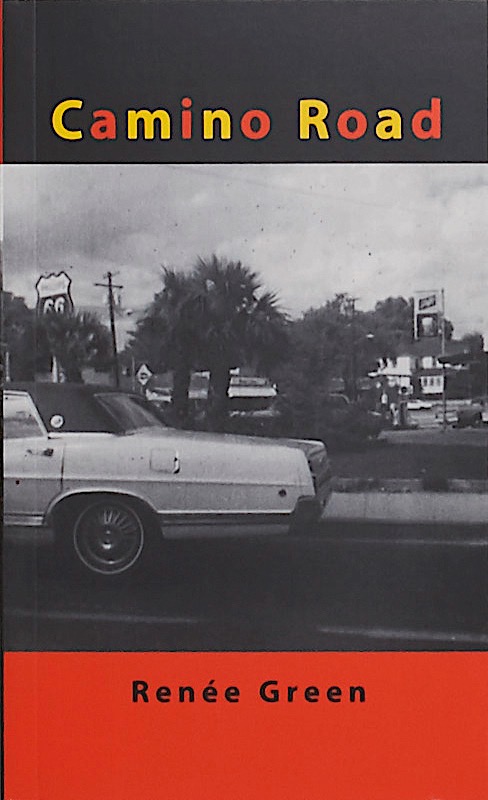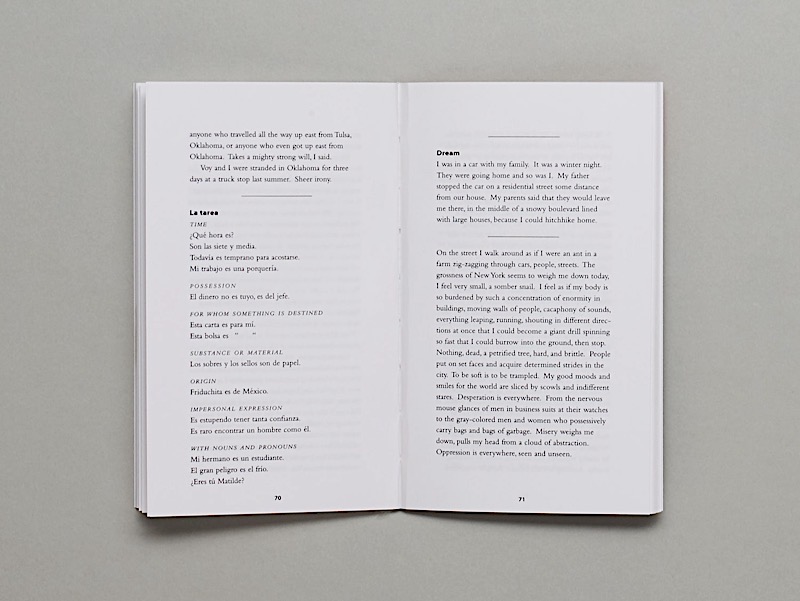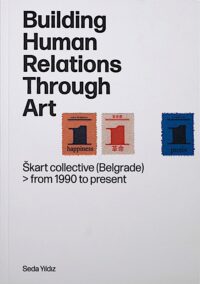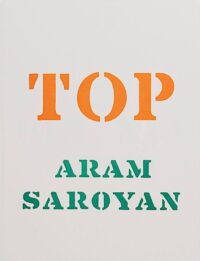€16,90
In stock (can be backordered)**stock child *
First published in 1994, Camino Road is artist Renée Green’s debut novel—a short, ruminative work infused with semantic ambiguity and the dreamy poetry of the quotidian. Republished here in a facsimile edition, the book ostensibly traces its protagonist Lyn’s journeys to Mexico and her return to attend art school in 1980s New York, but what emerges is more an intertextual assemblage of the moments between drives, dreams, and consciousness. Lyn does her Spanish homework and makes note to read Anna Kavan and Cortázar; she watches Fellini; she dreams about the Mediterranean Sea. Much like Green’s multimedia installations encompassing the sonic, spatial, and visual, Camino Road is richly layered—part intellectual genealogy, part fictional personal memory, and part cultural criticism.
Paperback, 10x18 cm
Spanish, English
Primary Information, 1st edition 2021
ISBN 9781734489781







